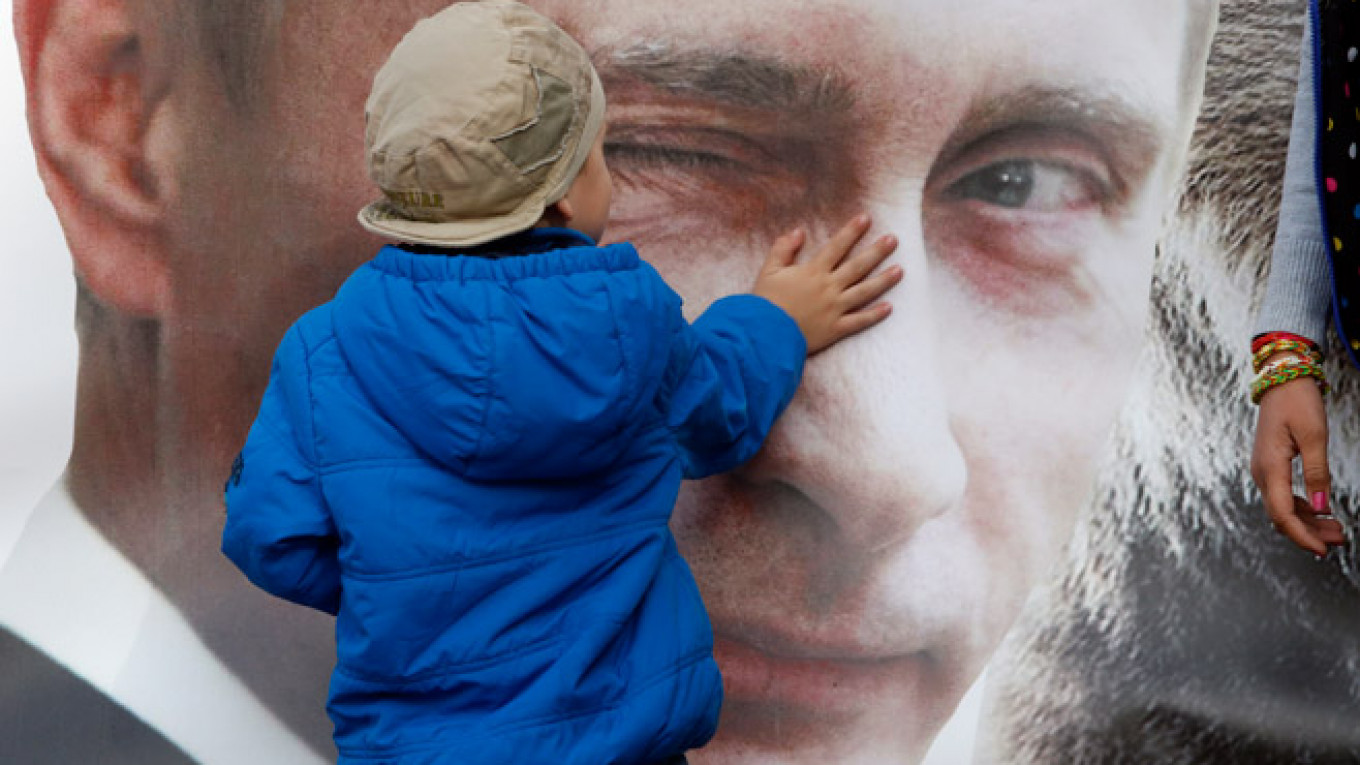More than eighty percent of the orders President Vladimir Putin signed the day of his inauguration three years ago have been implemented on time, according to a statement published Thursday on the Russian government's official website.
The government claimed that it had fulfilled 81.5 percent of the 168 presidential orders it had been mandated to complete by Thursday, the third anniversary of Putin's most recent inauguration. That day, Putin signed the so-called "May Orders," a series of campaign promises he had made ahead of his 2012 election.
Putin's 2012 decrees contain 218 orders, mostly linked to the country's long-term economic and social policies, with deadlines by which they should be implemented.
Among the objectives included in the May Orders were the creation of 25 million jobs in the high-tech sector by 2020, a 200-percent increase in doctors' average salaries by 2018 and the addition of 250,000 contract servicemen to the Russian army by 2017.
The government is currently working to implement 81 of Putin's orders, according to the statement. Government officials are expected to report to the president on 19 of these decrees by the end of the year.
The government bodies most active in implementing the orders are the economic development, education and labor ministries, the statement said.
Russia's recent economic woes have put Putin's May Orders at the forefront of domestic politics.
Kremlin spokesman Dmitry Peskov said in March that changing circumstances could lead to the orders being adjusted, but that their implementation would remain a priority, TASS news agency reported at the time.
A 2013 video leaked by sensationalist channel LifeNews showed Putin threatening to fire regional governors and other government officials for their lackluster implementation of his May Orders.
Contact the author at g.tetraultfarber@imedia.ru
A Message from The Moscow Times:
Dear readers,
We are facing unprecedented challenges. Russia's Prosecutor General's Office has designated The Moscow Times as an "undesirable" organization, criminalizing our work and putting our staff at risk of prosecution. This follows our earlier unjust labeling as a "foreign agent."
These actions are direct attempts to silence independent journalism in Russia. The authorities claim our work "discredits the decisions of the Russian leadership." We see things differently: we strive to provide accurate, unbiased reporting on Russia.
We, the journalists of The Moscow Times, refuse to be silenced. But to continue our work, we need your help.
Your support, no matter how small, makes a world of difference. If you can, please support us monthly starting from just $2. It's quick to set up, and every contribution makes a significant impact.
By supporting The Moscow Times, you're defending open, independent journalism in the face of repression. Thank you for standing with us.
Remind me later.






